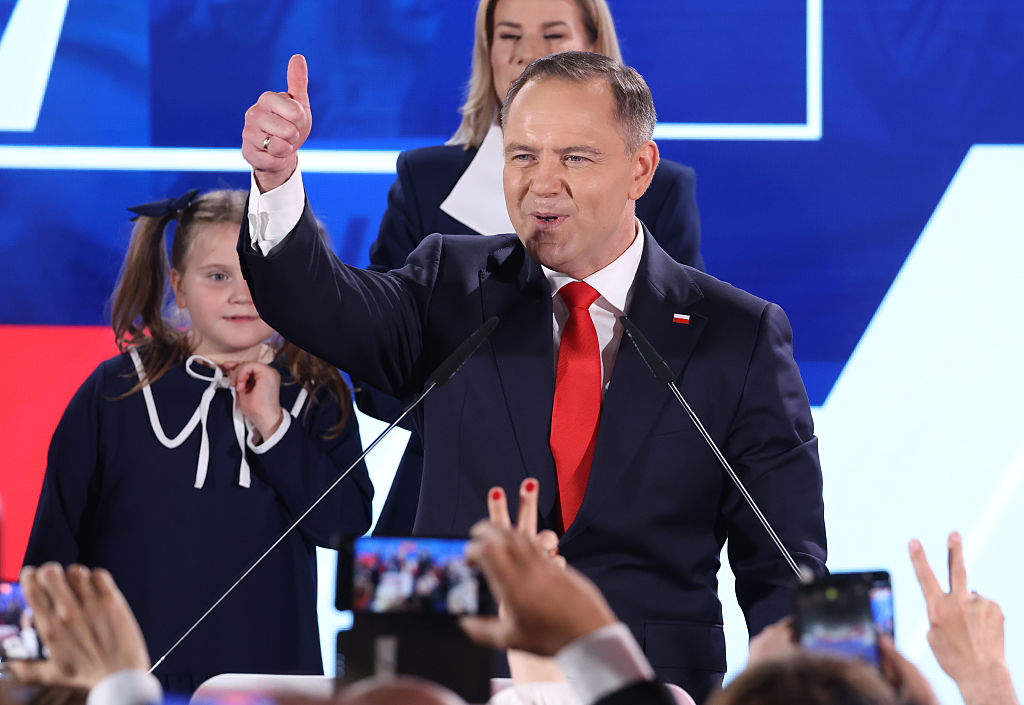Poland and the whole of Central Europe are once again at the centre of the West’s strategic calculations: A region that chose sovereignty against globalist designs, building the strongest land army in Europe and guarding the frontier of freedom. Its partnership with the United States, grounded in shared values and strengthened by immense energy reserves in regions like Lublin, holds the potential to restore security, take an active role in the reindustrialisation of the West, and counter both Russian aggression and German ambitions.
President Karol Nawrocki made his first trip to the United States less than a month after his election. It is unusual for an American president to receive a newly elected foreign leader so quickly. Even more extraordinary was Donald Trump’s endorsement of Nawrocki back in May, at the height of Poland’s election campaign—a campaign that ended with the Patriots’ candidate Nawrocki defeating the globalists, dashing their hopes of seizing full control of Poland, imposing a left-liberal order, and binding the country into a centralised EU under German dominance. For Poles—as opposed to the German MEP, Manfred Weber, who recently declared in the State of the Union debate that national sovereignty is a Potemkin village—sovereignty is a living reality, one they chose to defend with their votes.
The timing could not be more significant. The Trump administration is restoring order not only at home but also in regions destabilised by the failures of President Biden’s leadership. The decisive phase of bringing peace to Ukraine is critical for Europe—especially for the lands stretching from the Baltic to the Black and Adriatic Seas. This “Three Seas” region is indispensable for establishing a stable security order in Central and Eastern Europe. Here Poland’s role is not symbolic but decisive—also for American interests.
As Stefan Thompson, founder of influential X account Visegrád 24, noted at the recent NatCon conference, Poland does not only need the United States; America also benefits from a genuine partnership with Poland. Not hiding under the American umbrella as a free rider, but standing as equals in a win-win arrangement. In a post-globalist world, America needs strong, stable partners. Poland—leader of the Visegrád Group and the entire Three Seas region of 120 million citizens, with the fastest growth dynamic and a GDP nearing €2.5 trillion (Poland itself €1 trillion)—devotes nearly 5 per cent of GDP to defence and is building Europe’s largest land army, with more tanks than Germany, France, and Britain combined. It contains Russia on one flank and counters German ambitions to sever transatlantic ties through cooperation with China and Russia on the other.
Poland is a nation rooted in tradition, resistant to mass Islamic migration and “woke” ideology, faithful to Christianity, tolerance, and freedom—the very values for which Poles fought over the last two centuries. In short, Poles have long stood against the very threats JD Vance highlighted in his speech at the Munich Security Conference this March, a speech warmly welcomed in Poland as a sign that there remain voices in the West who think as Poles do, and thus a source of hope. Durable alliances can only be built on durable foundations of shared values. By electing Nawrocki, Poles chose sovereignty, transatlantic ties, and the rule of law over Tusk’s lawlessness—and in so doing, showed civic responsibility and political maturity.
One of the core areas of sovereignty is energy. In this field, American experience and partnerships are especially relevant. Donald Trump, with his “One Big Beautiful Bill,” punctured the balloon of ideological marketing around wind and solar. As Rupert Darwall, a senior fellow at the National Centre for Energy Analytics, has noted, EU energy policy has long tied supplies to unreliable and often hostile sources, raised costs dramatically, shrunk Europe’s industrial base, and thereby undermined its defence potential. Net-zero policies—implemented as a de facto war on fossil fuels—have eroded the three pillars of state sovereignty: energy security, economic competitiveness, and defence capability. This is crucial in the post-globalist era of Chinese and Russian threats to the West.
It is worth underscoring a particularly important dimension of energy sovereignty. Here, domestic resources make all the difference. As Alex Cranberg, a Texan energy executive and philanthropist, has pointed out, national energy resources mean not only freedom from geopolitical shocks but also tangible added value—money, jobs, and expertise that stay at home, financing social, defence, and energy-transition needs. Responsible development of domestic reserves is therefore the surest path to a safer, cheaper, and more sustainable energy future.
Zero-emissions dogma has already driven up energy prices for ordinary citizens, devastated Poland’s productive capacity—especially in the coal sector—but as the absurdities of the Green Deal are exposed, Poles increasingly recognise the social, economic, and geopolitical costs of abandoning their own resources. They are showing strong resistance to destructive “green” policies that cripple economies and hollow out industry. Nawrocki recently vetoed legislation, pushed by foreign lobbies, that would have allowed massive wind turbines to be erected directly next to residential neighbourhoods.
Trump’s tariff and energy policies ended globalisation. The next task is reindustrialising the West, which requires restoring coal, oil, and gas. Subsidizing wind and solar while taxing coal has only fuelled decline. As the West returns to conventional energy, Poland stands out as a strategic opportunity. While Upper Silesia has long been known for coal—on a scale comparable to Germany’s Ruhr or Ukraine’s Donbas—the true treasure of far greater significance lies further east, in the Lublin region. Poised between Warsaw and Lviv, on the border with Belarus and Ukraine, Lublin is not only rich in its attachment to the Christian tradition, national identity, diligence and history (the Polish-Lithuanian Commonwealth was founded there in 1569), but also in immense natural resources, most notably “Polish gold”: Hard coal.
Already today, one mine at Bogdanka produces 20 per cent of Poland’s coal. Yet surveys indicate that the region holds at least 40 billion tons, some of the largest reserves in Europe, with extraction costs up to five times lower than in traditional mining regions. Particularly valuable are deposits of coking coal, essential for steelmaking and worth twice as much as thermal coal. Lublin coal is thus indispensable not only for energy but also for high-grade steel, chemicals, and pharmaceuticals.
These reserves, long untouched, now offer the chance to build a new industrial heart of Central Europe on secure domestic resources. Within the Three Seas and transatlantic framework, this is a strategic opportunity awaiting leaders with vision. Shared values, geopolitics, and energy needs underpin an equal partnership: America gains a reliable ally with Europe’s strongest land army, while Poland contributes a pro-American society and the region’s strategic potential. Together with US security guarantees and defence technology, this forms a symbiotic relationship anchoring Western stability.





The imperious ECJ tells Poland that all rulings from its upper courts can be ignored